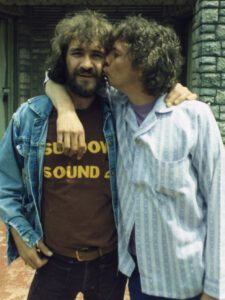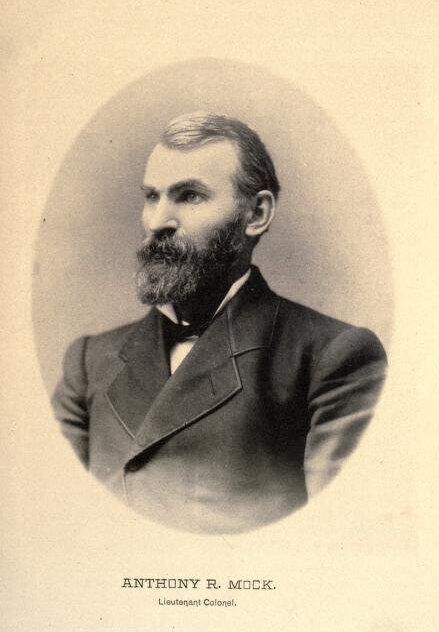By Brian Corrigan
MSNHA historic-preservation consultant
Photos by Dick Cooper, used with permission
Beloved Shoals-based musician and songwriter Donnie Fritts, a pioneer of “country soul” whose songs have been recorded by hundreds of major artists, died Tuesday, Aug. 27, at the age of 76. A key player in the formation of the Shoals music scene and a mainstay of that scene over the last few decades, Fritts’s trademark “funky” blend of R&B, country and rock shattered racial and musical barriers, helping to shape and define what is known the world over as the Muscle Shoals sound.
Born in Florence in 1942, Fritts played drums during his teenage years with local groups such as the Mark V, the Pallbearers and Hollis Dixon and the Keynotes. In the late 1950s, he struck up a friendship with Tom Stafford, the son of a local drug-store owner and manager of the Shoals Theatre.
“Tom and I talked and talked about dreaming of being in the music business,” Fritts later recalled. “All those talks became the studio above the drug store.”
That studio, Stafford Publishing and Recording, became a gathering place for Fritts, Dan Penn and other budding Shoals-music

luminaries. It was there, with encouragement from SPAR recording artist Arthur Alexander, that Fritts began honing his craft as a songwriter. As he told Eric Gebhardt in 2008:
“Arthur was a big influence on me. Always trying to get me to write… I was playing drums at the time and I had to slowly get started playing a little bit of piano… It just took me forever to learn, but I learned it so I could write songs… First time I wrote a song, I took it straight to Arthur and he really bragged on it.”
When Stafford’s business partner Rick Hall split with SPAR in 1961 and established FAME Studios in Muscle Shoals, Fritts, Penn and Alexander followed. Later that year, Alexander had a minor hit with his Hall-produced single “You Better Move On,” while Fritts and Penn got their first taste of music-business success working for FAME as staff songwriters. One song they co-wrote during this time, “Rainbow Road,” would later be recorded by Alexander in a version so definitive that it would forever be associated with the troubled singer. Although, as historian Peter B. Olson observes, the song’s narrative about “the tragic interplay of the promise of social mobility out of poverty and the harsh realities of racial prejudice and violence in southern society… was fictional, Alexander’s powerful rendition persuaded many listeners that the account was his own life story.”
By the mid-1960s, Fritts had followed David Briggs, Norbert Putnam and other FAME colleagues to Nashville in pursuit of more lucrative opportunities. After signing a songwriting contract with Mercury Records producer Shelby Singleton, Fritts quickly established himself as a promising talent and went on to write for CBS, Screen Gems and Combine Music–the publishing division of Nasvhille-based Monument Records. By the end of the decade, he had scored his first major hits, including three acclaimed songs co-written with guitarist Eddie Hinton: Percy Sledge’s “You’re All Around Me,” “Choo-Choo Train” by The Box Tops and “Breakfast in Bed,” recorded by Dusty Springfield for her iconic “Dusty in Memphis” album.
In 1970, Fritts joined the touring band of Monument recording-artist Kris Kristofferson as keyboardist. He worked with Kristofferson for the next two decades and became a central figure in the emerging “outlaw country” scene that centered around Kristofferson, Willie Nelson, Waylon Jennings and Johnny Cash.  Donnie Fritts with John Prine, Jerry Wexler, Kris Kristofferson, Dan Penn, David Hood, Jimmy Johnson, Barry Beckett, Roger Hawkins & others at Muscle Shoals Sound Studios in 1974 during the sessions for Donnie’s “Prone to Lean” album. Photo by Dick Cooper, 1974.
Donnie Fritts with John Prine, Jerry Wexler, Kris Kristofferson, Dan Penn, David Hood, Jimmy Johnson, Barry Beckett, Roger Hawkins & others at Muscle Shoals Sound Studios in 1974 during the sessions for Donnie’s “Prone to Lean” album. Photo by Dick Cooper, 1974.
“That was the most magical time to be in Nashville, because things were changing. Waylon started having hits, and Willie. Then Kris came along and changed everything. He changed the way everybody wrote songs [to] a much more intelligent way of writing songs,” Fritts said.
His own songwriting talents were in increasingly high demand during the 1970s. Over the course of the decade, Fritts-penned songs were recorded by major country music artists such as Ronnie Milsap, Charlie Rich and Jerry Lee Lewis. Joe Simon, meanwhile, hit the R&B top 20 with Fritts’s “Easy to Love,” recorded at Muscle Shoals Sound Studio, in Sheffield. Of particular personal significance to Fritts was “We Had It All,” co-written with Troy Seals for Waylon Jennings in 1973.
“It’s never been a hit,” he later recalled, “but it’s the most important song I got because I got to hear Ray Charles sing it. I said this to God, to myself, out loud… ‘If I ever get a song cut by Ray Charles I’ll quit.’ I didn’t but… it was one of those deals where it had been cut a few times so the publisher never even contacted me when Ray cut it… I knew this guy that owned this record store. He called me, said ‘Donnie, I want to let you know I got your Ray Charles cut in.’ I said ‘Man, don’t lie to me! Don’t tease me like that!’ He said, ‘Hell, I just listened to it. I’m looking at the record and it’s on Atlantic Records.’ Ray went back to Atlantic for that one record, and he produced it… I went down there to the record store and said, ‘I want every damn copy you got!’ I listened to it and I got tears in my eyes… After that no matter how low I got, if things weren’t happening or whatever, I could put that on and say, ‘You know what? That’s Ray Charles singing my damn song.’”

Fritts returned to the Shoals to record his own solo album, “Prone to Lean,” in 1974, with Jerry Wexler and Kristofferson producing. The association with Kristofferson also led to Fritts being cast by director Sam Peckinpah in the films “Pat Garrett and Billy the Kid,” “Bring Me the Head of Alfredo Garcia” and “Convoy.” Kristofferson secured another notable acting role for Fritts in the 1976 version of “A Star Is Born.” Fritts also played keyboards on the film’s Oscar-winning theme song, “Evergreen.”
In the 1990s, Fritts moved back to the Shoals permanently and was a prominent fixture of the local music scene during his final decades. “Memphis Women and Fried Chicken,” written for Dan Penn’s Shoals-recorded 1994 album “Do Right Man,” became something of a theme song for Fritts during these years and a staple of his frequent guest appearances with other local performers. He also resumed his own career as a recording artist, releasing his long-awaited second solo album, “Everybody’s Got a Song,” in 1998.
With the completion of his final album, “June,” in 2018, Fritts’s career came full circle. Recorded at 3614 Jackson Highway in Sheffield, where Fritts had cut his first LP in 1974, the album paid tribute to his old friend and formative inspiration Arthur “June” Alexander and found Fritts looking back on his storied life and career.
“As you get older you really reflect, and things come to you that you hadn’t thought about for a long time, or a song or something. And you think back and think, ‘How in the world did that ever happen to me?’ I just feel really blessed and really lucky,” he said. “Well, just to have been a part of all these people’s lives. That’s meant more to me than anything. All the songwriter’s I’ve written with, all the musicians I’ve played with… You know, these are great characters! And to have been a part of their lives… it’s incredible. I’ve been very blessed.”
Fritts, too, was a great character. And he blessed the lives of the writers and musicians he worked with as much as they blessed his.
“It’s a bigger thing than people realize not having Donnie around,” said bassist David Hood, whose band The Decoys played often with Fritts and supported him during a two-week tour of Japan in 2009. “He was the closest thing to a star we had around here. He was friends with everybody and everybody loved him.” ###
Florence native Brian Corrigan is the music preservation consultant for the MSNHA. He earned his master’s degree in public history from the University of North Alabama in 2018. He lives in Oxford, Mississippi, and works as a library specialist in technical services for the J.D. Williams Library at Ole Miss.







